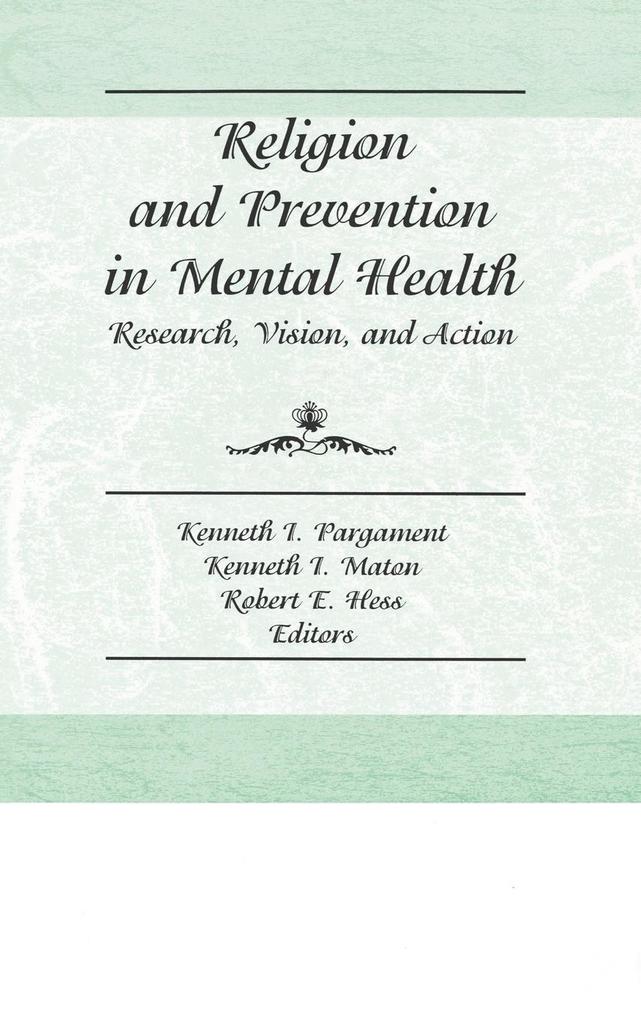
Zustellung: Sa, 19.07. - Do, 24.07.
Versand in 2 Wochen
VersandkostenfreiBestellen & in Filiale abholen:
Here is the first book which highlights the unique resource of religion in the field of prevention. Until now, religious systems have been a largely undertapped resource of talent, energy, care, and physical and financial assets. Religion and Prevention in Mental Health is a significant new volume that lays a general foundation for preventive work in the religious area. It presents a number of reasons for examining religion as a source for aiding prevention and well-being. The authors dispute the popular notion of religion as damaging to mental health, as well as the idea that religious affiliation is entirely predictive of better mental health. Instead they focus on the framework for living that religions provide which assists believers in anticipating, avoiding, or modifying problems before they develop. For the human service professional willing to build a collaborative relationship with religious systems, this vital book depicts the richness and diversity of religion and shows the interface of religion, well-being, and prevention.
Inhaltsverzeichnis
Contents
Religion as a Resource for Preventive Action
Religion as a Resource for Preventive Action
- I. Religion as a Resource for Preventive Action: Conceptual and Empirical Foundations
- Religious Perspectives on Prevention: The Role of Theology
- A Sociological Overview: Mental Health Implications of Religio-Cultural Megatrends in the United States
- Review of Religion and Mental Health: Prevention and the Enhancement of Psychosocial Functioning
- Religious Factors in Physical Health and the Prevention of Illness
- Religion and Prevention of Illness in Later Life
- II. Religion as a Resource for Preventive Action: Toward the Promised Land
- The Religious Dimensions of Coping: Implications for Prevention and Promotion
- Religious Aspects in the Resolution of Parental Grief: Solace and Social Support
- Toward a Psychosocial Conceptualization of Religion as a Resource in Cancer Care and Prevention
- Prevention Theory and Action From the Religious Perspective
- Healing and Empowering Through Community Narrative
- The African-American Church: A Source of Empowerment, Mutual Help, and Social Change
- Reciprocal Ministry: A Transforming Vision of Help and Leadership
- Congregational Consultation
- Networking Between Agencies and Black Churches: The Lay Health Advisor Model
- Preventing Homelessness: Religious Organizations and Housing Development
- Reference Notes Included
Produktdetails
Erscheinungsdatum
29. Dezember 1992
Sprache
englisch
Seitenanzahl
346
Autor/Autorin
Robert E Hess, Kenneth I Maton, Kenneth Pargament
Verlag/Hersteller
Produktart
gebunden
Gewicht
680 g
Größe (L/B/H)
229/152/24 mm
ISBN
9781560242253
Entdecken Sie mehr
Bewertungen
0 Bewertungen
Es wurden noch keine Bewertungen abgegeben. Schreiben Sie die erste Bewertung zu "Religion and Prevention in Mental Health" und helfen Sie damit anderen bei der Kaufentscheidung.









